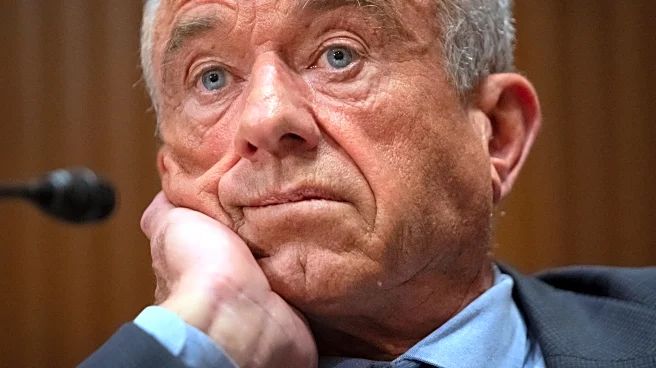What's Happening?
During the 1973 Yom Kippur War, Israeli Defense Minister Moshe Dayan faced a profound personal and professional crisis. Known for his leadership during the 1967 Six-Day War, Dayan's confidence was severely tested as Arab forces launched a surprise attack on Israel. The war's initial days saw Dayan grappling with the potential collapse of Israel's defenses, leading to a visible breakdown in his composure. Reports from the time suggest that Dayan, overwhelmed by the situation, exhibited behavior that some interpreted as a desire to be harmed in battle. His actions were partly driven by an intelligence failure, as Israeli Military Intelligence had underestimated the threat posed by Egypt and Syria. Despite the chaos, Dayan's strategic thinking remained intact, as he continued to assess the broader military situation. The war eventually ended with Israeli forces regaining control, but the psychological impact on Dayan and the nation was significant.
Why It's Important?
The Yom Kippur War was a pivotal moment in Israeli history, testing the resilience of its leadership and military. Dayan's experience underscores the immense pressure faced by leaders during wartime, particularly when unexpected challenges arise. The war's outcome had lasting implications for Israeli politics and military strategy, influencing future defense policies and international relations. Dayan's personal struggles during the conflict highlight the human cost of leadership in times of crisis, as well as the potential for redemption and recovery. His later role in negotiating the 1979 peace treaty with Egypt demonstrates the possibility of transformation and reconciliation, even for those deeply affected by war.
What's Next?
Following the Yom Kippur War, Israel underwent significant military and political changes. The conflict prompted a reevaluation of intelligence and defense strategies, leading to reforms aimed at preventing similar surprises in the future. Dayan's involvement in the peace process with Egypt marked a shift towards diplomatic solutions in the region. The lessons learned from the war continue to influence Israeli policy, as the nation seeks to balance security concerns with opportunities for peace. The broader Middle East context remains complex, with ongoing tensions and the potential for new conflicts, making the lessons of the Yom Kippur War relevant for current and future leaders.
Beyond the Headlines
Dayan's story during the Yom Kippur War offers insights into the psychological toll of leadership under extreme pressure. His experience raises questions about the support systems available to leaders in crisis and the importance of mental health awareness in high-stakes environments. The war also serves as a reminder of the unpredictable nature of international conflicts and the need for adaptable and resilient leadership. As Israel continues to navigate regional challenges, the legacy of the Yom Kippur War and Dayan's role in it remain significant touchstones for understanding the complexities of leadership and conflict resolution.











